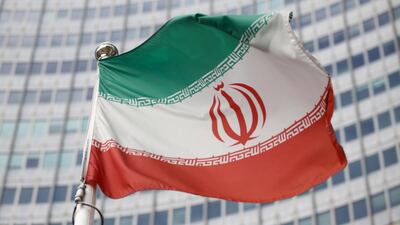The US expects indirect talks with Iran, which begin on Tuesday and will focus on both sides returning to the 2015 nuclear deal, to be difficult.
"We don't underestimate the scale of the challenges ahead," US State Department spokesman Ned Price said on Monday.
"These are early days. We don't anticipate an early or immediate breakthrough as these discussions that, we fully expect, will be difficult."
US and Iranian officials are scheduled to begin indirect talks in Vienna, with European officials expected to act as intermediaries, to try to revive the 2015 pact under which economic sanctions on Iran were eased in return for curbs on its nuclear programme.
Iran has ruled out direct discussions and Mr Price said Washington did not expect any "at present" but was open to the possibility.
The US special envoy for Iran, Rob Malley, a veteran of the Clinton and Obama administrations, will lead the US delegation in Vienna, where the pact was originally reached in 2015.
The agreement was struck by Iran and six major powers: Britain, China, France, Germany, Russia and the US.
US President Joe Biden's predecessor, Donald Trump, withdrew from the deal in 2018 and reimposed US sanctions, prompting Iran to breach some of the pact's nuclear restrictions in retaliation.
The Trump administration believed the sanctions pressure it applied would force Iran to consent to a new, more restrictive agreement that would also limit its development of ballistic missiles and support for proxies in the Middle East.
The Biden administration has maintained the sanctions on Iran, saying it wanted both sides to resume compliance with the deal, but that this required negotiations.
"Our goal at these talks ... is to set the stage for that mutual return to compliance," Mr Price said.
Iran has laid down a tough line in advance, with its foreign ministry saying on Saturday that it wanted the US to lift all sanctions and rejecting any "step-by-step" easing of restrictions.
"Robert Malley will have to leave Vienna empty-handed if the Tuesday meeting would result in anything other than the removal of all US sanctions," a source close to Tehran's negotiating team told Iran's English-language Press TV on Monday.
While the two sides appeared at odds over who should take the first step to resume compliance, a US official recently said Washington would be "pragmatic" and not let the matter of who goes first be an obstacle.

